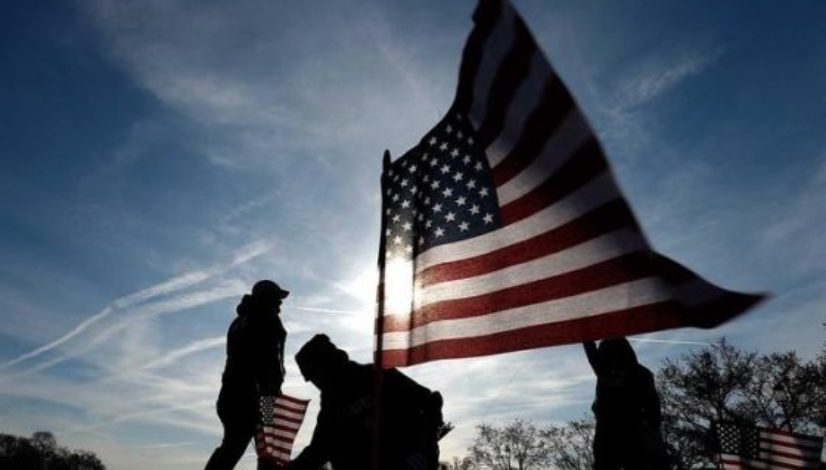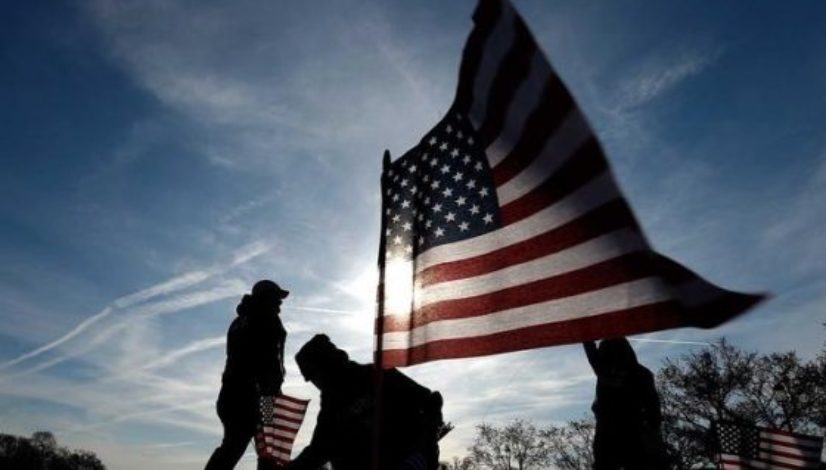Weed for Warriors: Cannabis growers help vets connect and heal

An average of 20 veterans in the United States commit suicide every day, according to a U.S. Veteran’s Association report in 2016. Iraq War veteran and Arcata resident Art Gutierrez, 31, had met three friends while in service who would eventually become part of this troubling statistic. He came close to being part of it as well after falling into a pattern of depression and painkiller addiction after his service ended in 2010.
Gutierrez said what prevented him from taking his life was rediscovering the camaraderie with his brothers and sisters in arms through cannabis as part of the Weed for Warriors Project.
“I chose not to use pharmaceuticals,” Gutierrez said. “There was a relief that came from cannabis, a spiritual relief that happened over time. The spiritual relief and all that happened as my body and my mind started to clear up. I, as a person, became happier and became passionate about life again.”
Gutierrez was introduced to the Weed for Warriors Project in San Jose, and after moving to Humboldt County last year, he decided to create his own local chapter in March 2016 which now has more than 55 veterans on its roster.
Related stories
- From top gun pilot to cannabis industry exec
- All vets would automatically qualify for medical marijuana in New Mexico under new bill
- Colorado bill allowing medical marijuana for PTSD sails through Senate
- Live in a legalized state? Here are 9 ways federal marijuana laws are limiting your rights
- Colorado lawmakers push PTSD bill to address pleas for medical marijuana
A year later, Vietnam War and Iraq War veterans to U.S. Coast Guard veterans like Jean Marvel say the organization has helped them to overcome struggles of self-doubt, addiction and depression as they adjust to civilian life.
“We might not have been with them in the time they were in war, but we know what they’ve been through and understand there is more to what’s out there,” Marvel said. “We want to help them medicate and function on a daily basis without having to take these pharmaceuticals.”
The project works by having local cannabis producers donate their cannabis products to the organization. Gutierrez said this connection through cannabis brings back the sense of brotherhood that is sometimes lost when returning to civilian life. He said he is planning to expand the educational aspects of the group to promote clean medicinal cannabis production, coping with anxiety, and reinforcing the need for connection in times of distress, which he said can apply to those who aren’t veterans as well.
Former U.S. Army and Navy veteran Ishan Gould, 39, has lived in Eureka for a year and was introduced to the project in April 2016. Before moving to California in 2007, Gould stated transitioning from the rigid, scheduled lifestyle of active duty to a civilian life was frustrating and led to anger issues and restlessness. He said he coped with this by using methamphetamines and cocaine, but said all those did was filter out the emotions rather than confronting them.
After discovering medical cannabis in 2007, he found that it was able to alleviate both his stress and depression.
“Marijuana allows me to relax myself to where you can understand what you’re trying to process,” he said. “Cannabis lets you take a break and assess what’s going on.”
Marvel went through a similar situation. She is currently homeless, but is working to find permanent housing and is 10 months sober from methamphetamine and heroin addiction. Like Gutierrez and Gould, she found it was hard to cope with the anxiety after her service with the Coast Guard ended in 2006. Marvel said the Weed for Warriors Project meetings make her feel youthful again by creating a venue to be open, honest and understanding with those she can relate to.
“I’m able to understand that life isn’t what you think it will be,” she said. “This group helped me get centered and focused and have people to relate to veterans’ lives. Basically, I lived with a lot of anxiety from being in the service and having so much of a purpose and then getting out and not having so much and then turning to such bad things.”
And with this connection comes hope, Gould said.
“Having that sense of purpose and importance makes their lives more worth living and fulfilling,” Gould said. “It gives people a perspective of hope and an outlet to voice what their concerns are and create a platform of change.”
More information about the Weed for Warriors Project can be found on its website.
This story was first published on TheCannifornian.com
Topics: addiction, California, military veterans, ptsd




